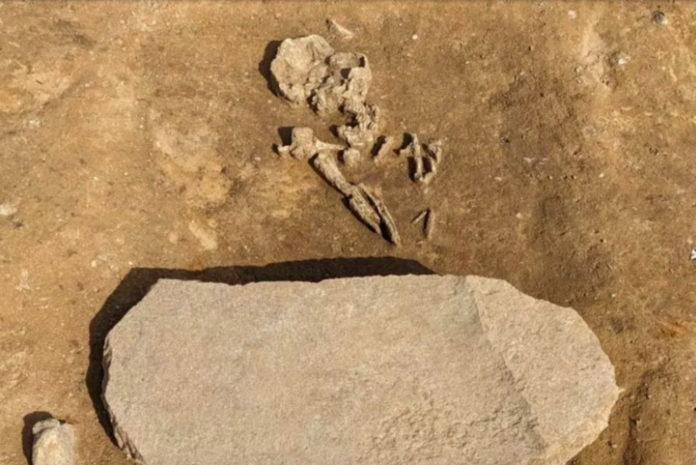Archaeologists unearth grave of ‘zombie’ ancients wanted buried forever
Archaeologists have discovered an unusual burial in Germany indicating that prehistoric people were afraid of the deceased returning to life.
The burial can be described as a “revenant” grave, one of the archaeologists involved in the discovery told Newsweek. Such examples are sometimes referred to colloquially as “zombie” graves.
In the folklore of several ancient cultures, the term revenant refers to an individual who comes back from the dead as a spirit or animated corpse, sometimes to terrorize the living.
Revenant graves have been found in various locations across Europe, dating back thousands of years. These burials are characterized by evidence of precautions taken to prevent the dead from rising up. Such measures could include large stones placed on the legs of the deceased or bodies pierced with a lance to fix them in the ground.
The majority of these graves date to the Middle Ages, although some examples originate from prehistoric times.
The latest example was uncovered near the village of Oppin in the German state of Saxony-Anhalt during rescue excavations conducted ahead of planned construction work related to an energy infrastructure project.
The “extremely interesting” burial contained a man aged 40 to 60 at the time of his death, Saxony-Anhalt’s State Museum of Prehistory announced in a Facebook post.
The man was found in a crouched position, with a large stone, measuring around 3.2 feet in length and 1.6 feet wide, lying over his legs. Archaeologists believe the stone must have been placed there for a reason, probably to keep the deceased in the grave and prevent him from coming back to life.
“We know that already in the Stone Age people were afraid of revenants. People wanted to prevent this with magic,” Susanne Friederich, an archaeologist with the State Office for Heritage Management and Archaeology of Saxony-Anhalt and project manager of the excavations, told Newsweek.
“Back then, people believed that dead people sometimes tried to free themselves from their graves. Sometimes, the dead were laid on their stomachs. If the dead lies on his stomach, he burrows deeper and deeper instead of reaching the surface,” she said.
While the burial has yet to be conclusively dated, it appears to be associated with the Bell Beaker phenomenon—an archaeological culture that appeared more than 4,500 years ago in Europe and persisted for several centuries. Archaeologists discovered a further grave of the bell beaker culture nearby, as well as other remains, such as a hearth.
The burial could represent the first revenant grave from the Bell Beaker period to be found in central Germany. If confirmed, the discovery would be unusual, given that there is little evidence of such burial customs for this culture.
Video can be accessed at source link below

